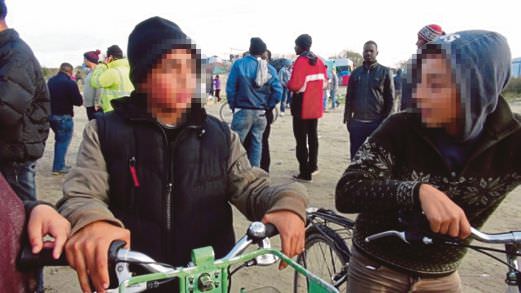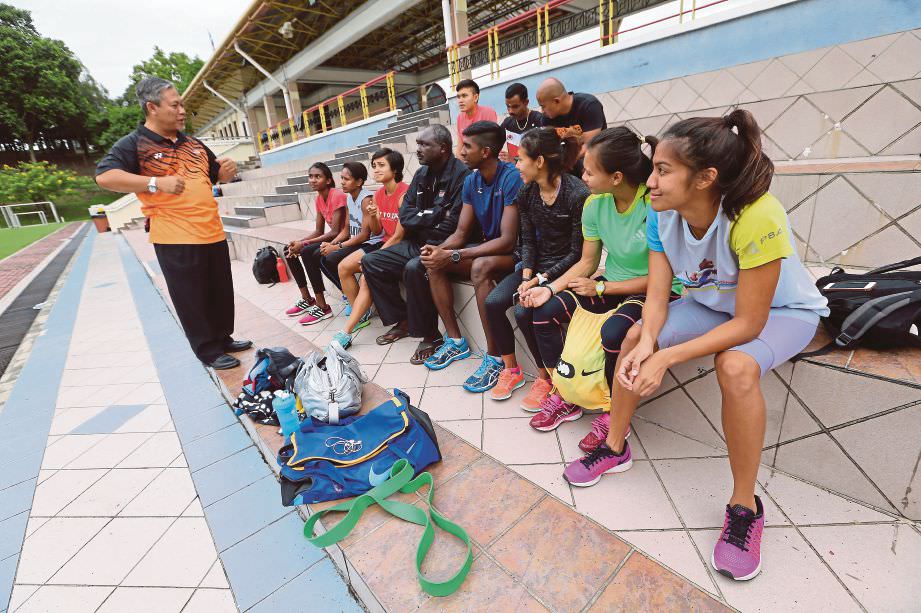CALAIS: Wahid manoeuvred the toy lorry on the mat in the Kitchen in Calais, where we had just had dinner. He moved it in a zigzag manner and sometimes revved it up. Wahid could be forgiven for playing with a toy lorry because he is only 13, but he was not playing with it.
He was actually demonstrating how often he tried to get onto lorries on the busy motorway in Calais, in the north of France, to get into the United Kingdom. Wahid, a child migrant from Afghanistan, had a few futile attempts, but he was lucky that he survived to tell us the story.
This week, Wahid will be with other child migrants from the transit camp to join their relatives in the UK, for they have the legal rights to do so under the European Union’s Dublin regulation governing refugee claims.
But sadly, not for 14-year-old Raheemullah Oryakhel, another child migrant, also from Afghanistan, who had his life and dreams cut short when he fell from a lorry and was hit by a car while attempting an escape.
He had survived the long perilous journey from war-torn Afghanistan, escaped from the clutches of the Taliban, only to die on the road that was to lead him to a better life in the UK, where he had a brother.
While Raheemullah’s body was flown back to his village for burial, Wahid was lucky that he could continue his journey, thanks to efforts of people like Sue Clayton, documentary filmmaker and social advocate, who had been working with lawyers and social workers to help the children understand their legal rights.
The transit camp houses about 10,000 refugees from war-torn and troubled countries, such as Afghan-istan, Syria, Eritrea, Iraq and Sudan. No one knows for sure the exact number of child migrants who made their long journey unaccompanied.
Some were as young as nine. Many had made their way in coaches and trains across the channel this week as the British government had announced the decision to take unaccompanied children with relatives in the UK.
“At least 400 of them have the legal rights to be in the UK and I am very angry because the British government never publicised that. So, for almost a year, most of them lived in the ‘Jungle’ by themselves,” said Clayton, breaking down with despair written all over her face. According to the law that governs EU asylum claims, migrants should claim asylum in the first EU country that they reached.
“Any child coming to Europe normally has to stay in the country they arrive, but if they have family in another country, they can go there. For example, if you are in France or Italy and you have relatives in the UK, you are allowed to go there,” she explained.
Another amendment to the Immigration law was known as the Dubs Amendment, named after Lord Alfred Dubs who came to Britain fleeing Nazi Germany. He brought an amendment to the Immigration Act, which was passed in May, stating that the UK will take “vulnerable unaccompanied child refugees” who arrived in the EU before March 20.
The child refugees must be travelling on their own and fleeing conflict in their home countries. In the last few days, children under the age of 17 arrived in coaches and trains to be reunited with their relatives. I met Wahid at the Kitchen in Calais, a makeshift kitchen run by a Malaysian husband and wife team, Jamalulail Ismail and Sofinee Harun, who had been feeding thousands of refugees daily since last year.
Wahid was noticeably happy that his father’s cousin was waiting for him in east London. His story was no different from others. His father died fighting the Taliban and his mother and grandfather lived in fear that the Taliban would come to take him away as they had done with so many other youngsters in his village in the province of Laghman.
His grandfather sold his land to pay smugglers for Wahid’s safe passage. Sitting cross-legged on the floor of the dimly lit kitchen, Wahid fidgeted as he recalled his reasons for leaving his mother and youngest sister behind.
The long and perilous journey had taken one year, or perhaps two years, he said, as events had obviously affected his memory. Time was immaterial. Like those who escaped Afghanistan, he could rattle off the names of countries he went through; Pakistan, Iran, Turkey, Bulgaria (where he was briefly held captive in a small room with only water to drink), Serbia, Hungary, Austria, Italy and France.
The world became his classroom. A bright boy, Wahid mastered the Italian language when he was there for two months. He spoke a smattering of English with the help of another Afghan refugee.
He said he slept rough with other refugees he met along the way; at train stations, doorways and ports. Money was channelled through the smugglers from his grandfather.
Sofinee and Jamalulail provided the love and care that these children had missed. They knew these children by name and were familiar with the circumstances that drove them there.
Now, with the announcement that the whole “Jungle” will be evacuated by today, while still providing food through the tiny window of their kitchen, Sofinee and Jamalulail gave out bags, rucksacks, shoes and clothes to those leaving the camp. Nisar Ahmed, 17, could not hide his excitement.
In just a few hours, he will be reunited with his father who fled Afghanistan when he was just two. He came to the kitchen to ask for just a small bag.
“I don’t have many things,” he said, wearing only a pair of slippers with no shirt or jumper underneath his jacket. He wasn’t choosy. Most of the jeans in Sofinee’s caravan were big, but they managed to find him a decent pair and he left with a brand new pair of trainers, a big smile plastered on his face.
His father will take care of the rest. Since the awareness of this legal rights, it is hoped that the children would not attempt risky escapes anymore.
Husam, a 10-year-old boy I met during my first trip to the “Jungle” last November, had apparently successfully escaped to England. He arrived unaccompanied from Iskandariah, journeyed by trains and boats crammed with 350 people. Husam had been one of the lucky ones, unlike Raheemullah.
Ahmad, a refugee from Iraq, suffered from bouts of anger as he worked in the kitchen, as he still recalled the moment the Taliban snatched his young brother from him. Stories about child migrants from the “Jungle” were endless, but for now at least, some will start a new and happier chapter in their lives.
-New Straits Times







